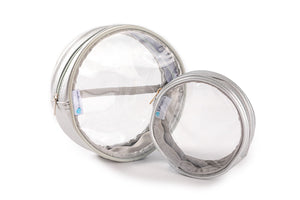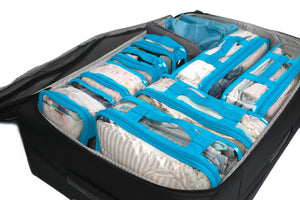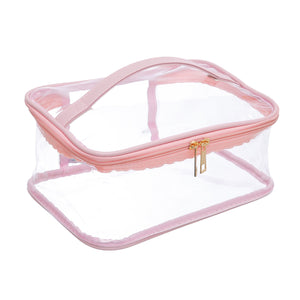Fighting The Big C: An Interview With Lani
Posted by Jelinne Navarro on
Lani is from a small town in Ohio. She was living a normal life when, in her twenties, began to notice that she was becoming increasingly tired. She still went about her daily life but had to push herself physically to do the things she normally did.
Her fatigue escalated to the point that some days it was a struggle to get out of bed. This, combined with night sweats, led her to seek out the help of medical professionals. Many appointments and routine labs revealed no explanation for her symptoms.
As the years passed and her fatigue grew unbearable, Lani also started having leg pain. That led her to see specialists. Still, a limited MRI and more blood work revealed nothing.
She did not give up and finally consulted with a physician who took her seriously and ordered the correct tests.
Those tests revealed a slow growing Stage 4, Non-Hodgkin's Lymphoma which had been growing for so many years that it had now turned aggressive.
She immediately started 6 months of chemotherapy which lowered her immune system to a dangerous level.
Check out our inspiring interview with Lani below. We learned about her experience battling with this disease and how she was able to cope from diagnosis to treatment. To our surprise, we also learned how she lived out of a suitcase for months and wished she had known about EzPacking then. She hopes anyone in her position can learn from her story.
What kind of cancer were you diagnosed with?
I was diagnosed with Stage 4 Non-Hodgkin's Lymphoma.
How long did you have to undergo chemotherapy?
I was in treatment out of state for 6 months and lived out of a suitcase.
How did you cope with the anxiety and stress caused by cancer (and chemotherapy)?
The way I coped with the stress and anxiety of a cancer diagnosis was asking friends for recommendations of binge worthy television shows. I tried to steer my mind away from scary thoughts by becoming engrossed with interesting series. Light hearted shows worked best during that time.

How important is cleanliness and organization when undergoing chemotherapy?
During my time in the hospital, I needed my environment to be clean and as germ free as possible. This included the people that came to visit me as well as my clothing and other belongings from home.
My family members would wash my clothes at home and immediately seal them into plastic garbage bags to keep them clean.
How can EzPacking cubes help patients undergoing chemotherapy or other hospital treatments?
These cubes are perfect for chemo patients and others with low immune systems. While I was hospitalized for a stem cell transplant, I had to be extremely careful about germs. My clothes had to be very clean, almost germ free. That was a challenge and I wish I would have known about these cubes then.
My mother could have put the clothes directly from the dryer into cubes, to the hospital & kept them in the cubes in a drawer until I needed to use them. Putting the clean clothes into a suitcase is not clean. We used garbage bags. Not quite as nice...
Also, they are see-through so no one needs to dig through them, spreading germs, while trying to find what they are looking for.
What’s your favorite EzPacking product?
I love all of the cube sizes, each for different reasons.
The Large Cube packs folded jeans and sweaters.
The Medium Cube packs folded shirts well.
I also use the Large and Medium Cubes if I need to lay something flat instead of vertically, like a suit jacket or dress.
I use the Small Cube to pack bras, underwear and socks, which I also fold and pack vertically.
I use the Extra Small Cube to pack charging cords, sunglasses, small binoculars, rubber band, band-aids, alcohol wipes and my nail kit.
Can you tell us something about cancer that most people don’t know about?
Cancer can be very isolating. Friends and family members often times dismiss the seriousness of cancer. They don't want the person with cancer to be afraid so they try to encourage them by telling them they will be fine or they will beat it, etc.
Those well intended phrases are, ironically, more isolating than helpful. It makes the person with cancer realize how disconnected that person is from what they are really going through and dealing with emotionally. We then feel forced to smile and shake our heads in agreement to make the other person feel better, which is also difficult.
What’s the best way to support someone who has cancer?
To be truly supportive is to be realistic. Not all cancer diagnoses are the same. Some are very hopeful but others are quite grim. Knowing details about your loved one's cancer and their prognosis is an important factor in knowing how to support them.

Be real with your feelings. A person with cancer knows when you are not being real with them and they would prefer to feel able to speak freely and honestly with you. They may feel you are not open to that if they sense you are not speaking honestly with them.
It's okay to share your fears and concerns. It may help them to feel less alone and to know that their fears and worries are warranted and okay too, that they are not alone.
A big thank you to Lani for sharing her story with us. We hope this interview will help spread awareness about cancer and the struggles patients have to go through.
0 comments







